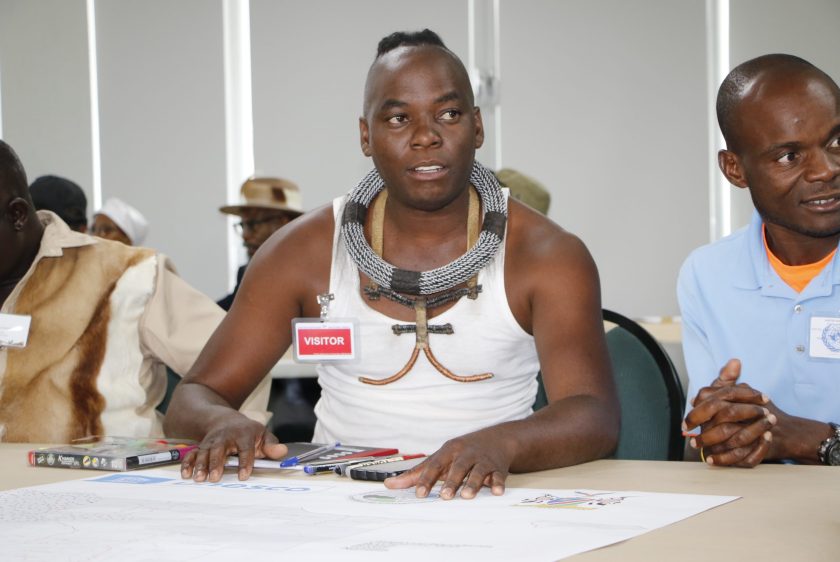
Strengthening Indigenous and Local Knowledge in Biodiversity Planning: A National Workshop in Namibia
From 3 to 4 September 2025, representatives from Indigenous and Local Communities across Namibia gathered in Windhoek for a transformative workshop aimed at strengthening the role of Indigenous and Local Knowledge (ILK) in national biodiversity planning.
Hosted by the Namibia Nature Foundation in partnership with UNESCO, the workshop brought together a diverse group of participants representing a wide range of languages, regions, and traditional knowledge systems. Attendees included delegates from Living Museums, Traditional Authorities, Conservancies, Community Forests, and Forest Reserves, united by a shared goal: to amplify Indigenous voices and ensure their knowledge informs the future of biodiversity governance in Namibia.
Over two days, participants worked to validate desk-based research, identify community priorities, and contribute directly to the National Outlook on ILK of Biodiversity. Discussions centred on safeguarding sensitive cultural knowledge, strengthening community-led documentation methods, such as oral histories, audiovisual archives, and intergenerational storytelling, and advancing equitable benefit-sharing through prior informed consent and inclusive governance structures.
The workshop also served as a platform for co-designing policy-relevant solutions that reflect the lived realities and expertise of Indigenous communities. Together, attendees explored how ILK can be embedded into national frameworks in a way that is community-led, sustainably governed, and culturally rooted.
Crucially, the workshop surfaced practical barriers, including language constraints, limited land access, insufficient funding, and the risks of commercialisation, and provided space for participants to develop realistic, community-driven responses collaboratively. These included strategies for partnership building, increased visibility in policy dialogues, and improved access to technical and legal resources.
This impactful initiative reflects a growing national commitment to recognising Indigenous and Local Knowledge as a cornerstone of biodiversity conservation, climate resilience, and sustainable development.
With deep appreciation to UNESCO for its continued support in advancing inclusive biodiversity governance and the protection of Indigenous cultural heritage.



